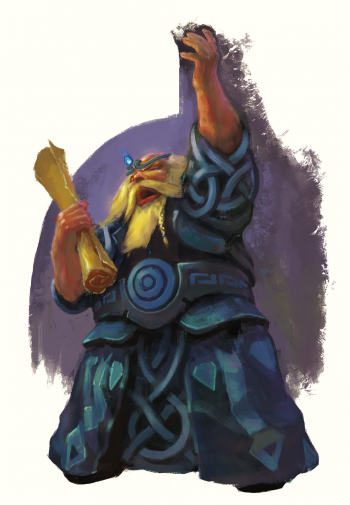Tactician: Difference between revisions
No edit summary |
No edit summary |
||
| Line 1: | Line 1: | ||
{{Class | {{Class | ||
|classpic= | |classpic=Tactician.png | ||
|hp=8 | |hp=8 | ||
|bab=Poor | |bab=Poor | ||
Latest revision as of 20:22, 27 July 2017

| |||||
| HP / Level | 8 | BAB | Poor | Skills | 9 |
|---|---|---|---|---|---|
| Fort | Ref | Will | |||
| Poor | Good | Good | |||
| KOM | Int | KDM | Con | ||
| Medium Track | Slow Track | Fast Track | |||
| Tactical Insight | Bag of Tricks | Tactician Spellcasting | |||
Description
An organized platoon of warriors will always triumph over a rowdy band of brutes, and it is the tactician’s duty to make sure that his comrades are the former rather than the latter. Tacticians rarely hold their own in a duel, but their talents lie elsewhere – in finding the enemy’s weak point and enabling their allies to strike it as effectively as possible. To this end, tacticians train in a diverse range of skills, from powerful magic that can turn the tide of a battle to unorthodox tactics that give them and their allies an edge in combat.
Knowledge is the tactician’s bread and butter. All tacticians train the six Knowledge skills and choose three additional skills to train.
Party Role
A tactician is a support character. While he may not be personally swinging a sword, his abilities greatly help the party’s front-liners. Tacticians win fights through careful application of the right spell in the right place, an art much subtler than beating things to death with sticks.
Tacticians in Your Game
Tacticians can be used in many leadership roles: as army officers, bandit chiefs or rebellion leaders. Their focus on magic and knowledge makes them ideal wizards or scholars. Because they are spellcasters, some uninformed people may confuse them for shamans.